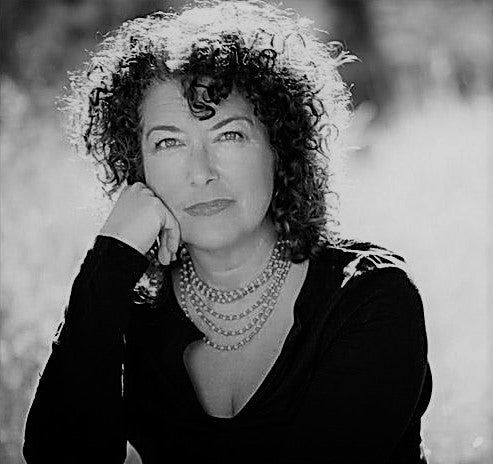
Featured in the Venus chapter in Agents of Evolution
The Evolutionary Path of Venus + the Healing Balm of Love
Nina Simons is an international speaker, leadership author, and educator, as well as social entrepreneur who is passionate about the power of women to transform the world. She cofounded Bioneers and serves as its chief relationship strategist. Nina’s work includes racial and gender justice, indigeneity and rekindling a sacred relationship to nature, and co-creating a just transition that’s regenerative, loving, and peaceful. At the center of everything she does are the themes of women, embodied practice, leading from the heart, and relational intelligence—Venus themes, through and through.
From the introduction to her book Nature, Culture & the Sacred: A Woman Listens for Leadership, Nina embraces a Venusian orientation toward solving the world’s problems— she encourages us to fall in love:
"I suggest that you first give yourself permission to fall in love. Fall in love with. . . anything that really lights you up. Then give yourself to it in some sort of purposeful action."
You don’t have to know what that means, exactly, or have it strategically mapped out in advance. You just have to commit to being its ally, to acting to defend or protect or improve its life. Then see who else is committed to it.. . . Bring all of yourself. Lastly, I suggest that you trust that exactly who you are is what is needed at this moment in the world and that you are enough in every way to meet this assignment. Here’s the best part: I’d suggest you do this not because it’s right (though it is), not because it’s needed (though it surely is), but because it is the most joyful, purposeful, and fulfilling way to live your life.
Nina spoke to me about a specific way of being in a relationship that communicates one of the inner strengths of Venus practice. She mentioned how she strives to stay present even when a conversation is making her uncomfortable.
“If we are willing to give focus, time, and love to practicing this, along with real commitment,” she says, “we can evolve through a lot of messy growing pains to be able to work together in a new and regenerative way.”
Melting the Barrier between Our Heads and Our Hearts
Once at a Cultivating Women’s Leadership retreat in rural northern New Mexico, Nina and the retreat co-facilitator explored the collective pain of racial wounding with the participants. On the last night of the retreat, Nina was awakened at three o’clock in the morning. One of the women participants was gasping for breath from an asthma attack. She had forgotten to bring her inhaler. Nina saw the terror in this woman’s eyes.
Nina’s mind had no context for what was taking place, so she turned to the wisdom of her body. Asking the woman’s permission, she held her head against her chest. She breathed slowly and deeply, stroked her head, and began rocking while humming something like a lullaby without words.
The woman of color having the asthma attack was an environmental justice leader, and the conversation about race from earlier in the day may have triggered the response her body was now having of not being able to breathe.
“I don’t have any illusion that I healed her,” Nina says. “But thankfully, after what seemed an endless time, her breathing steadied and slowed. As she calmed, I laid her head back down on the pillows. I sat beside her, stroking her head and face. When she’d closed her eyes, and was breathing normally, I sank down to the floor beside her bed. Tears were streaming down my cheeks.”
Nina knew the shell of her separateness had cracked open:
"The barrier that my privilege had created between my head and heart had been pierced. I felt the pain of this woman’s asthma and the profound injustice of her having to live with it acutely. I knew it was caused due to racial bias, redlining, and corporate greed and malfeasance, and my heart ached even as my anger was kindled to change it. In that instant, I also knew my own complicity and account- ability for it. No matter how many years I’d known about the most toxic industries being sited in poor inner-city neighborhoods, and the suffering that results from the toxic inequities, corruption, and corporate abuses of our current systems, no matter how long I’d known about the elevated rates of asthma and diabetes, of heart disease and cancer in these communities, I had known them from the distance my privilege afforded me. I had known them as statistics that shocked and saddened me, but I had never before felt the direct impacts of that injustice the way I did so personally that night." (Simons 2019, 174–176)
The collective barrier that our privilege has created between our heads and our hearts melts one relationship at a time. Any time any of us has an experience like Nina’s, we step closer to a much more beautiful, collective world.